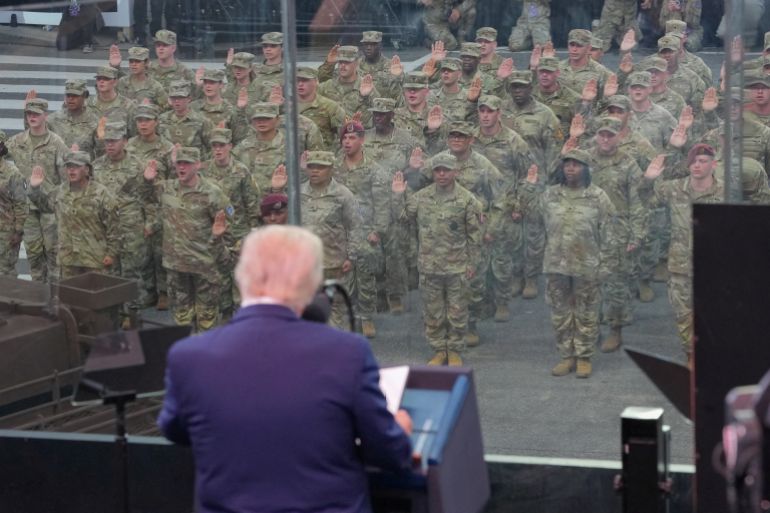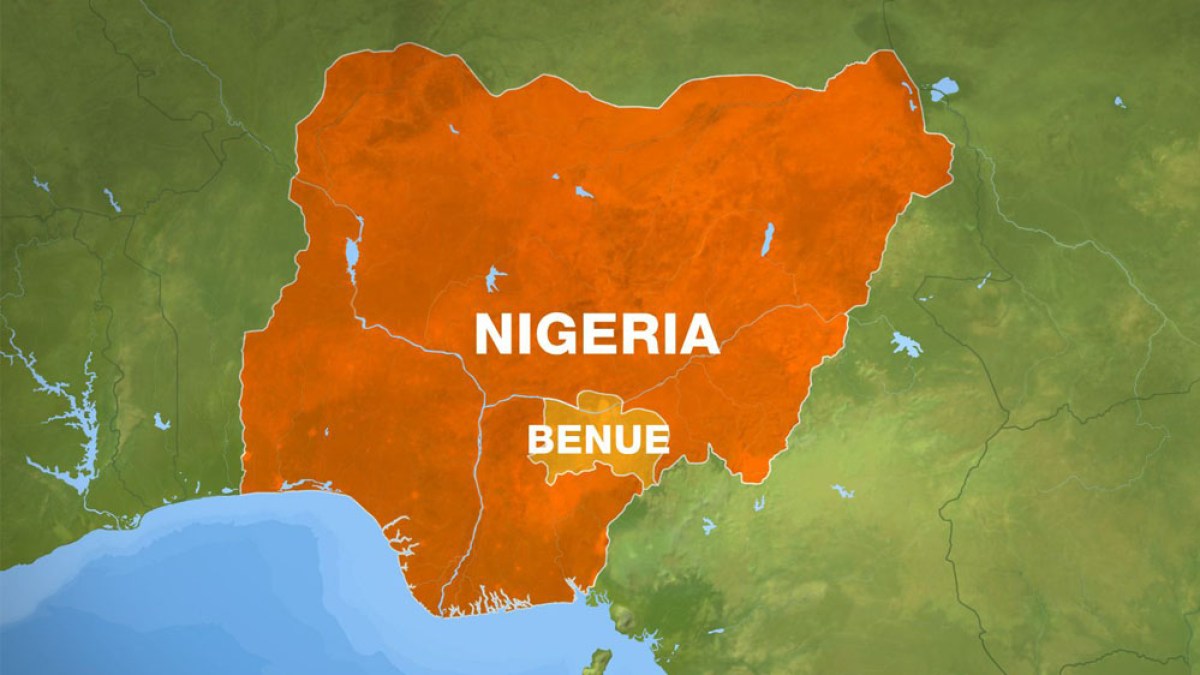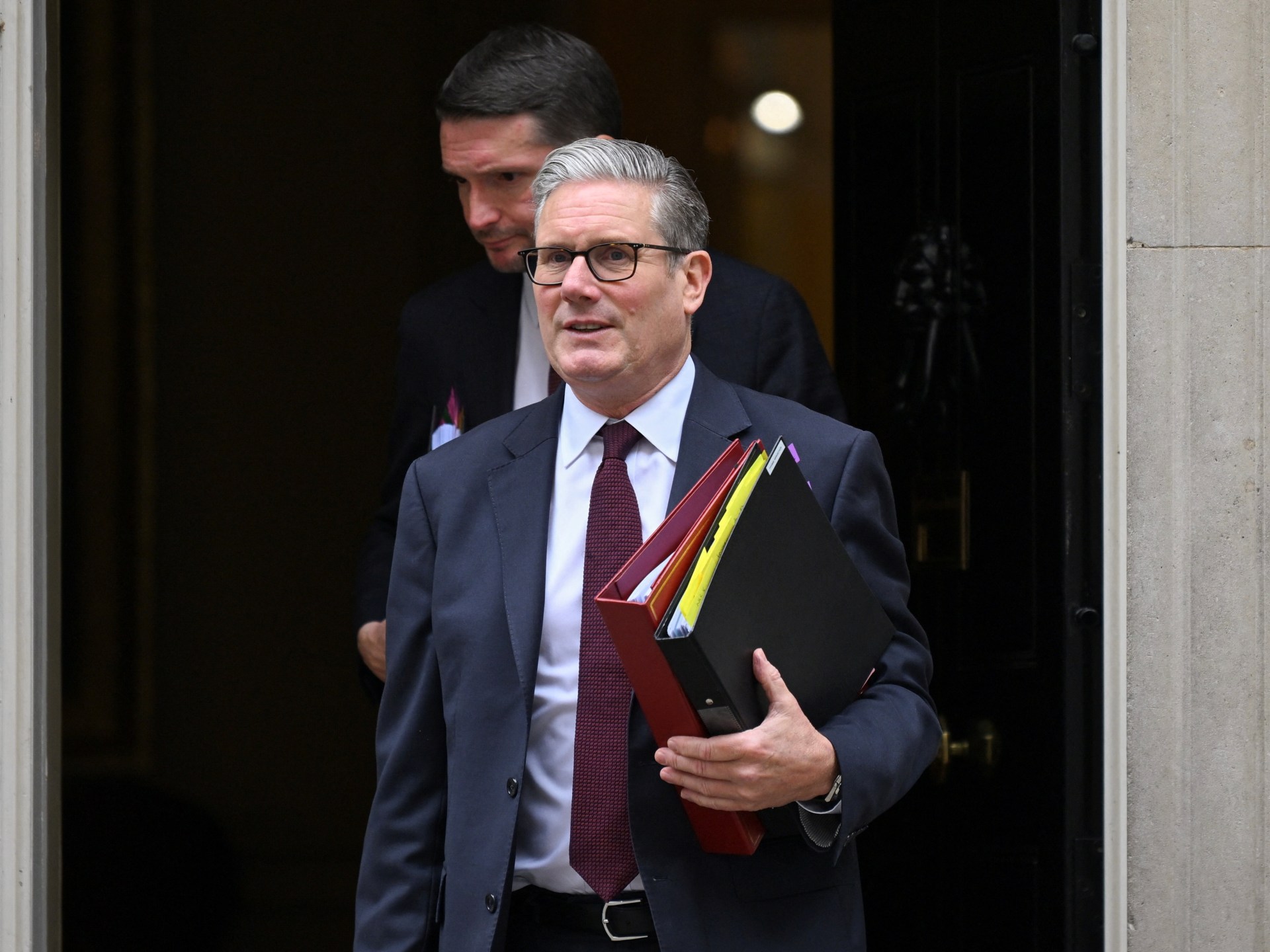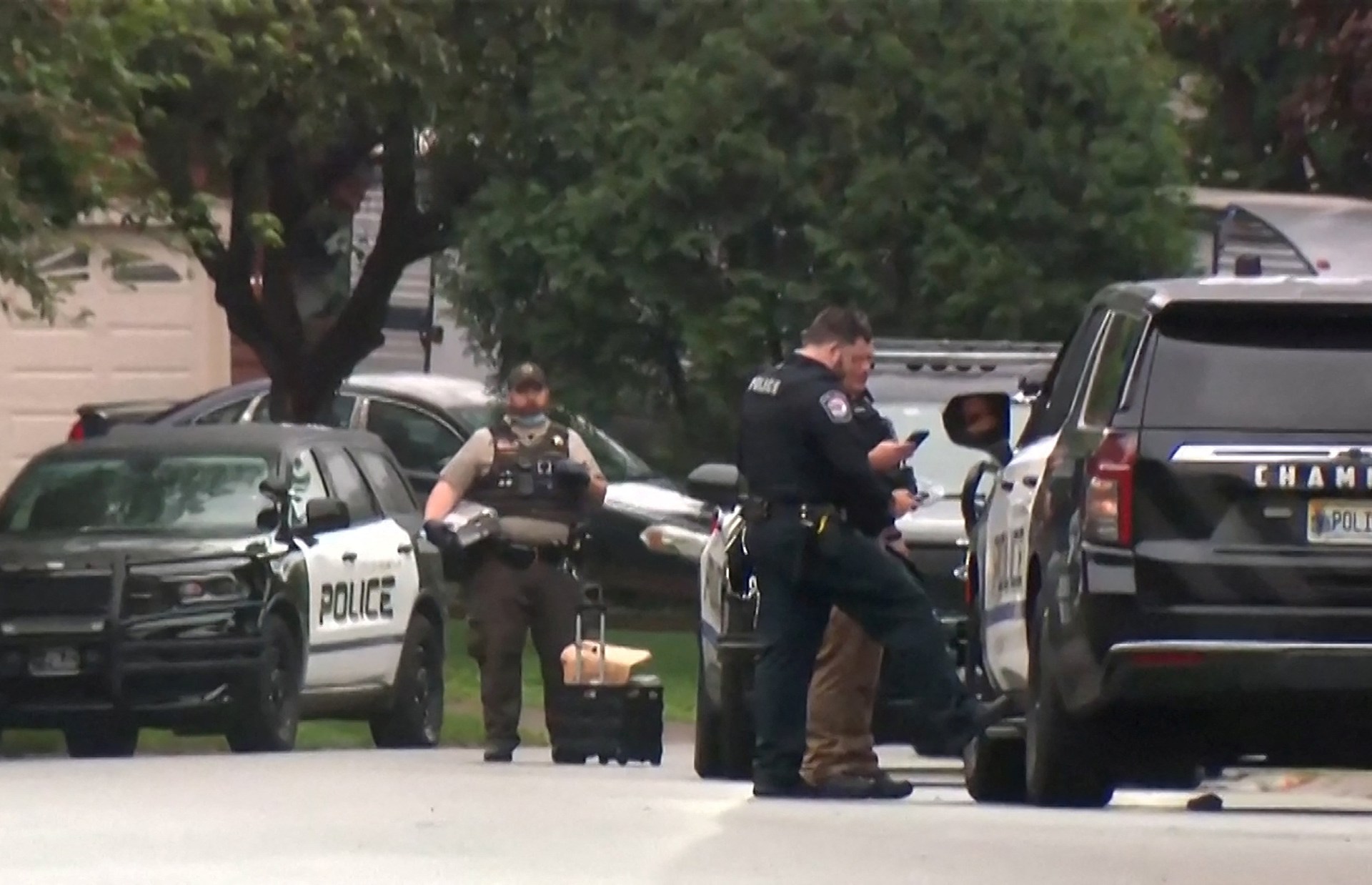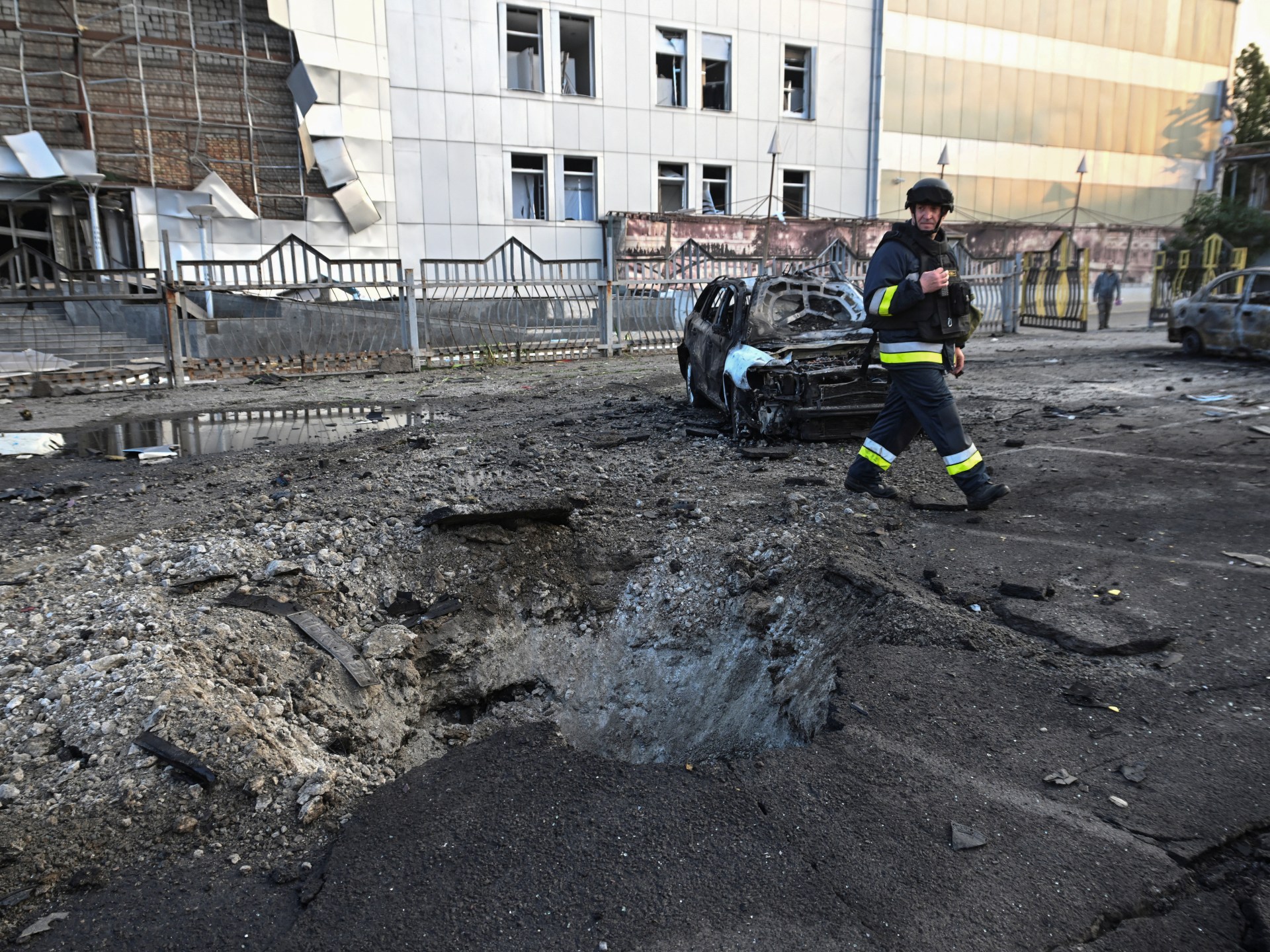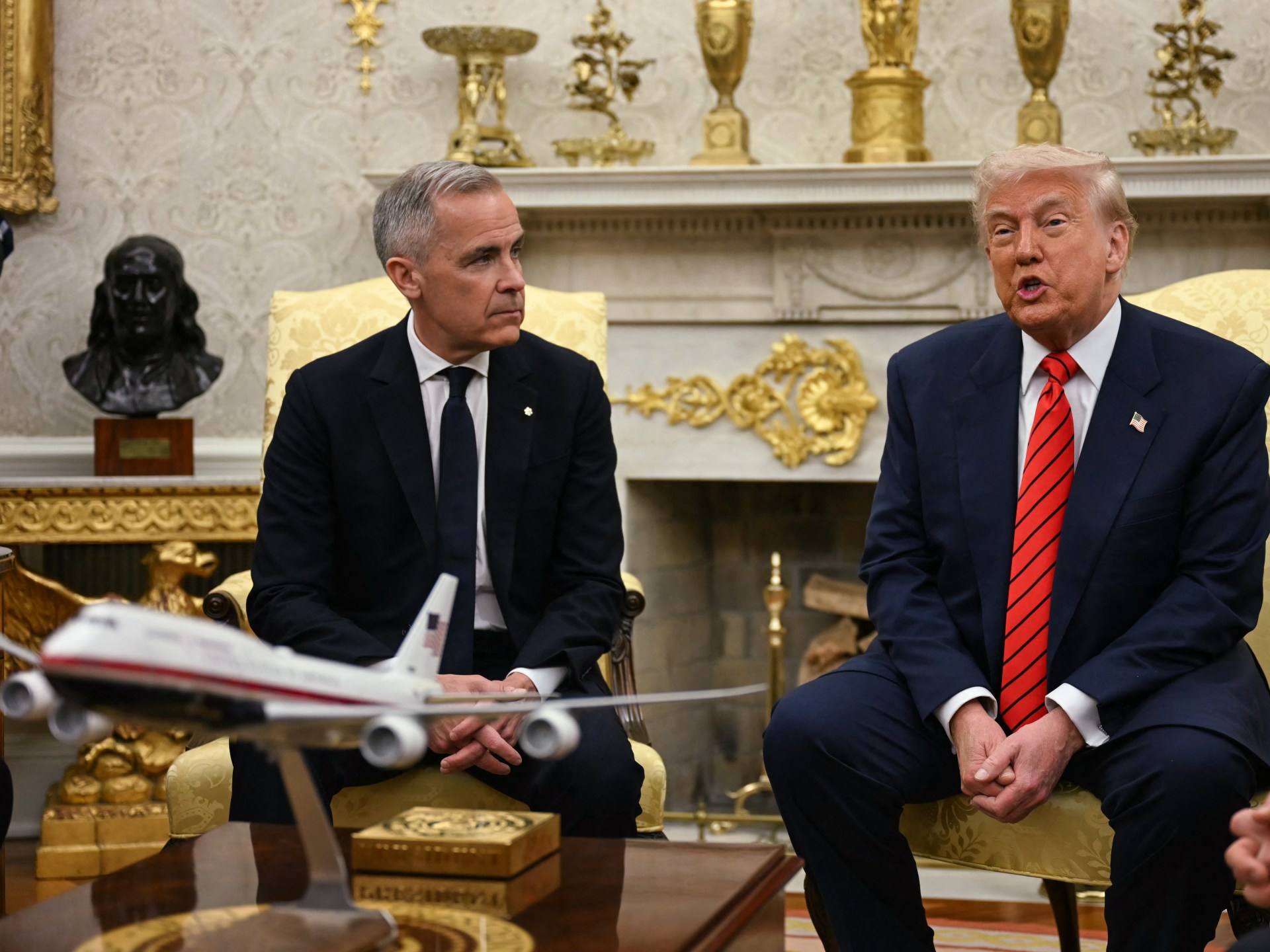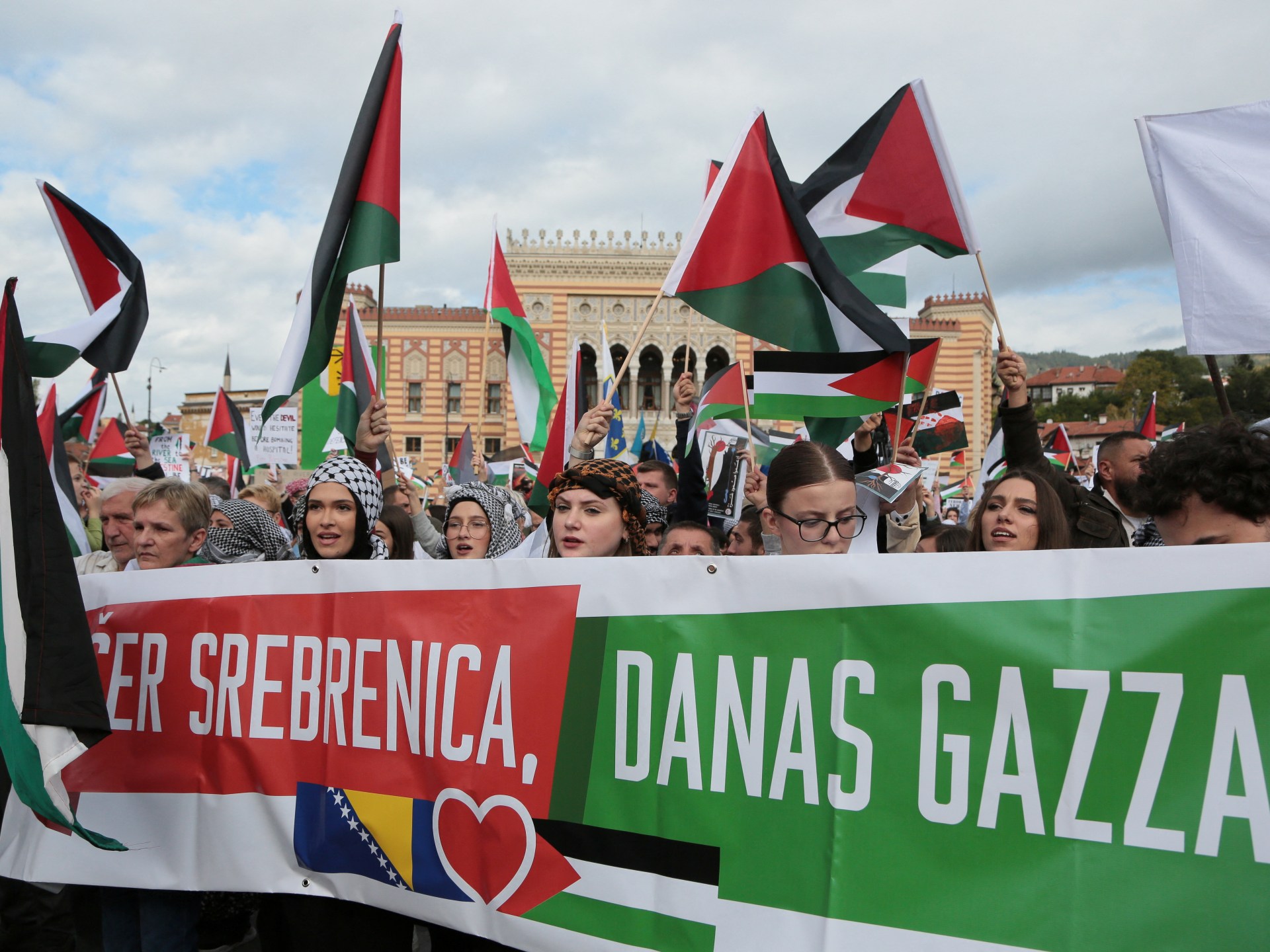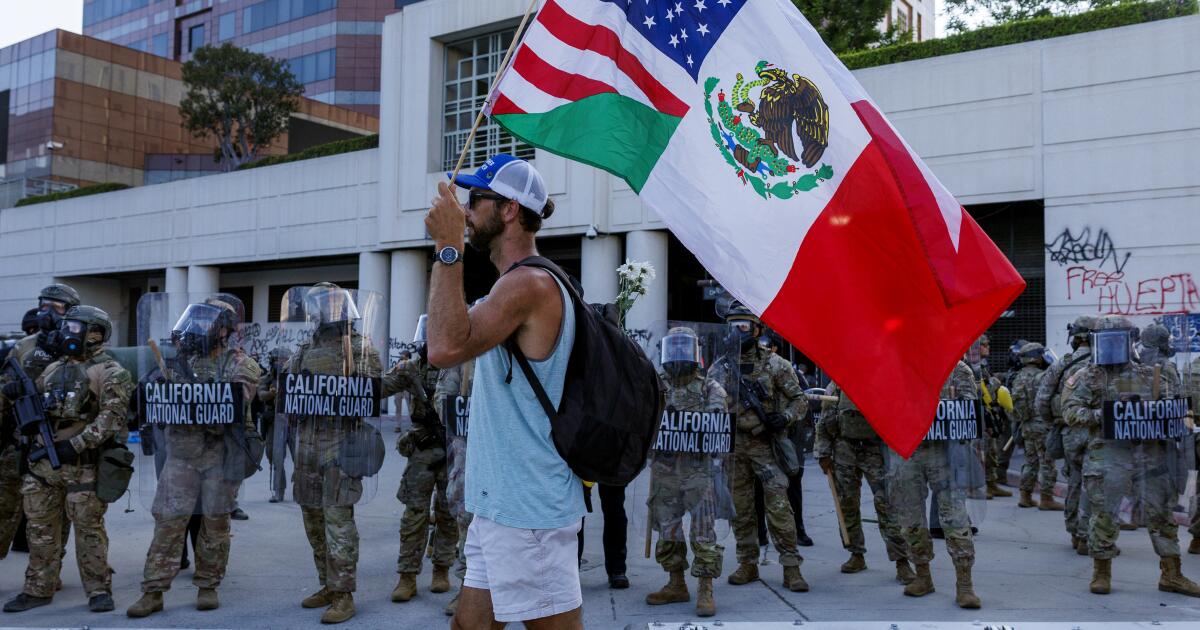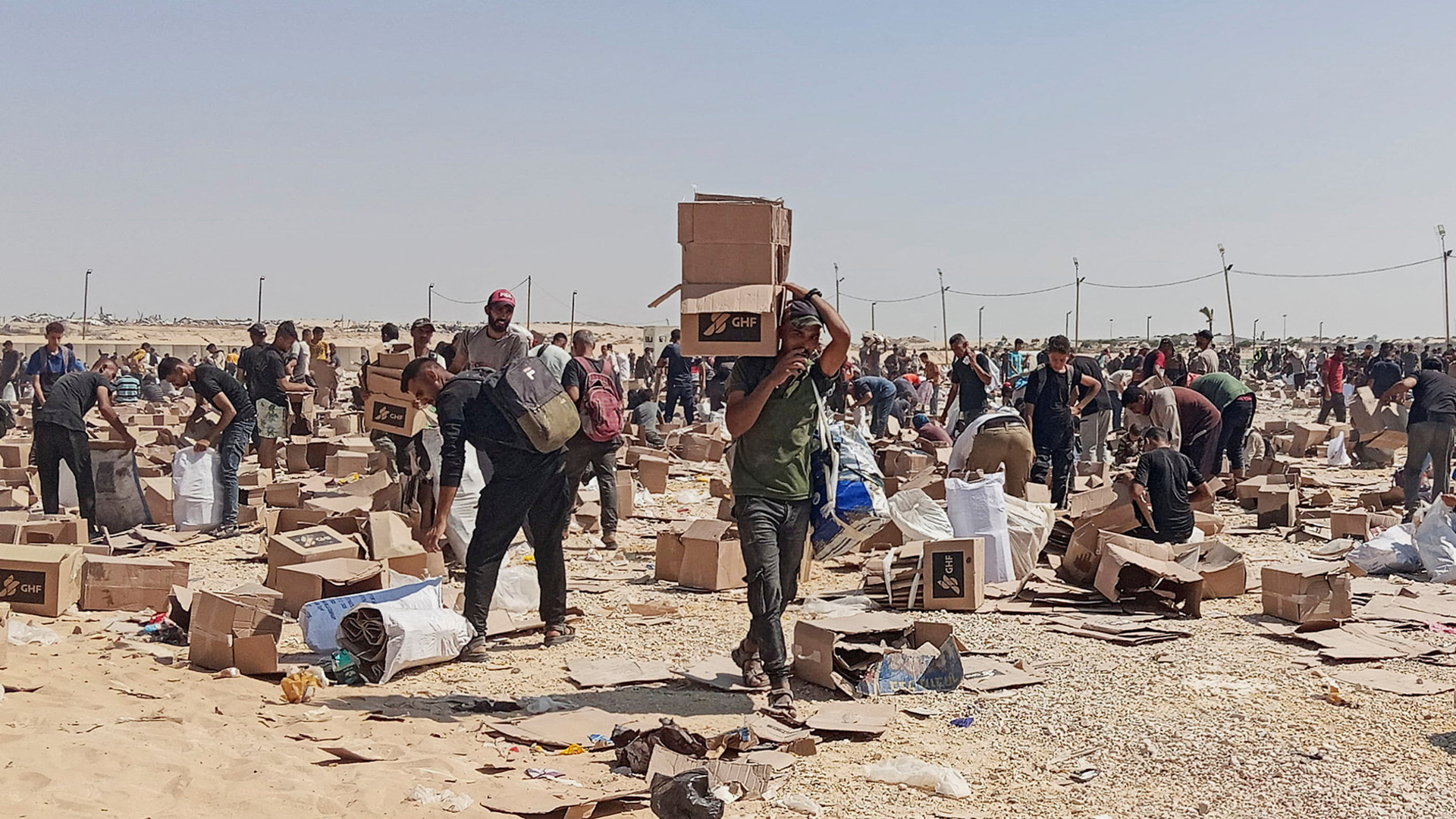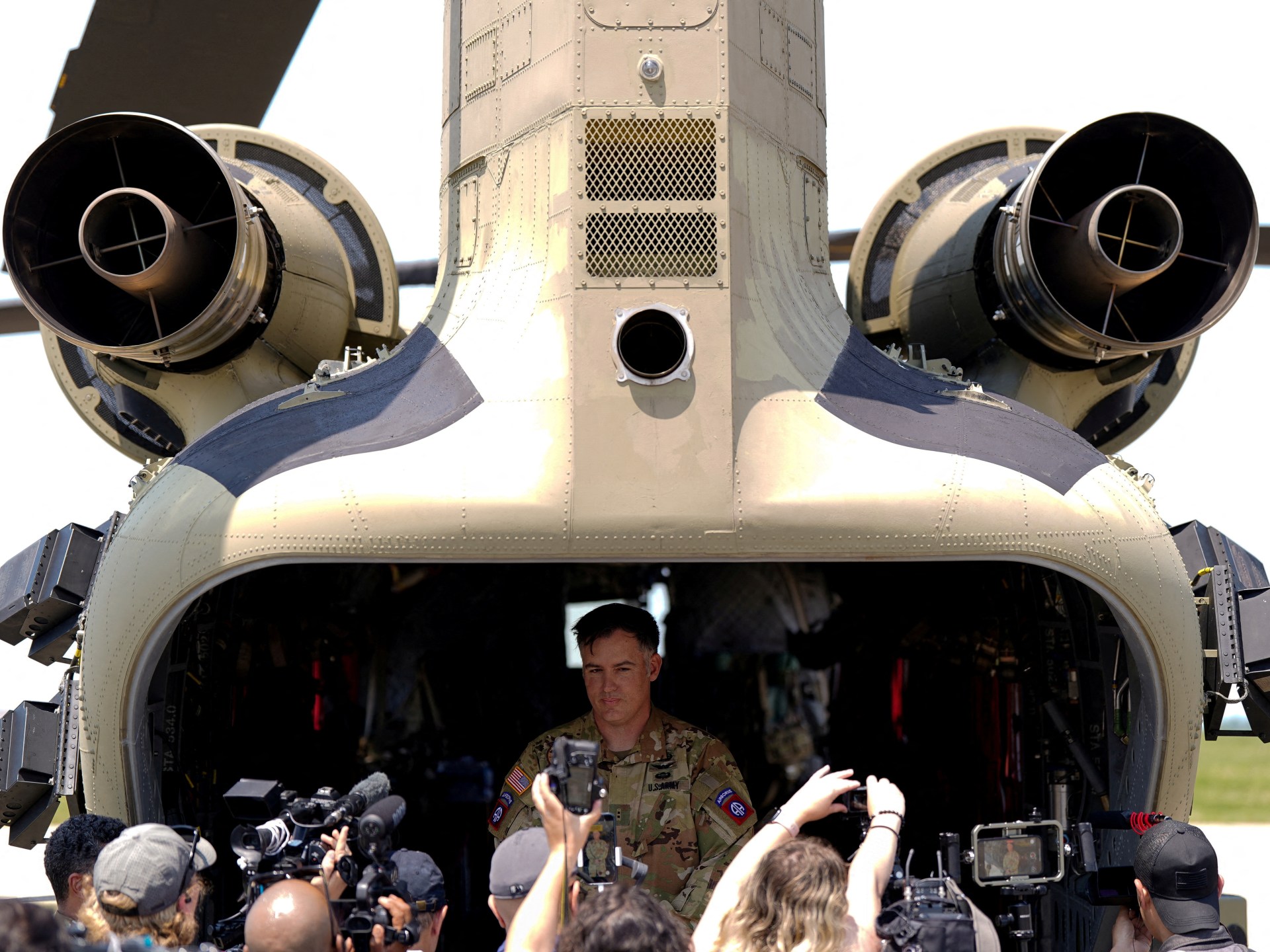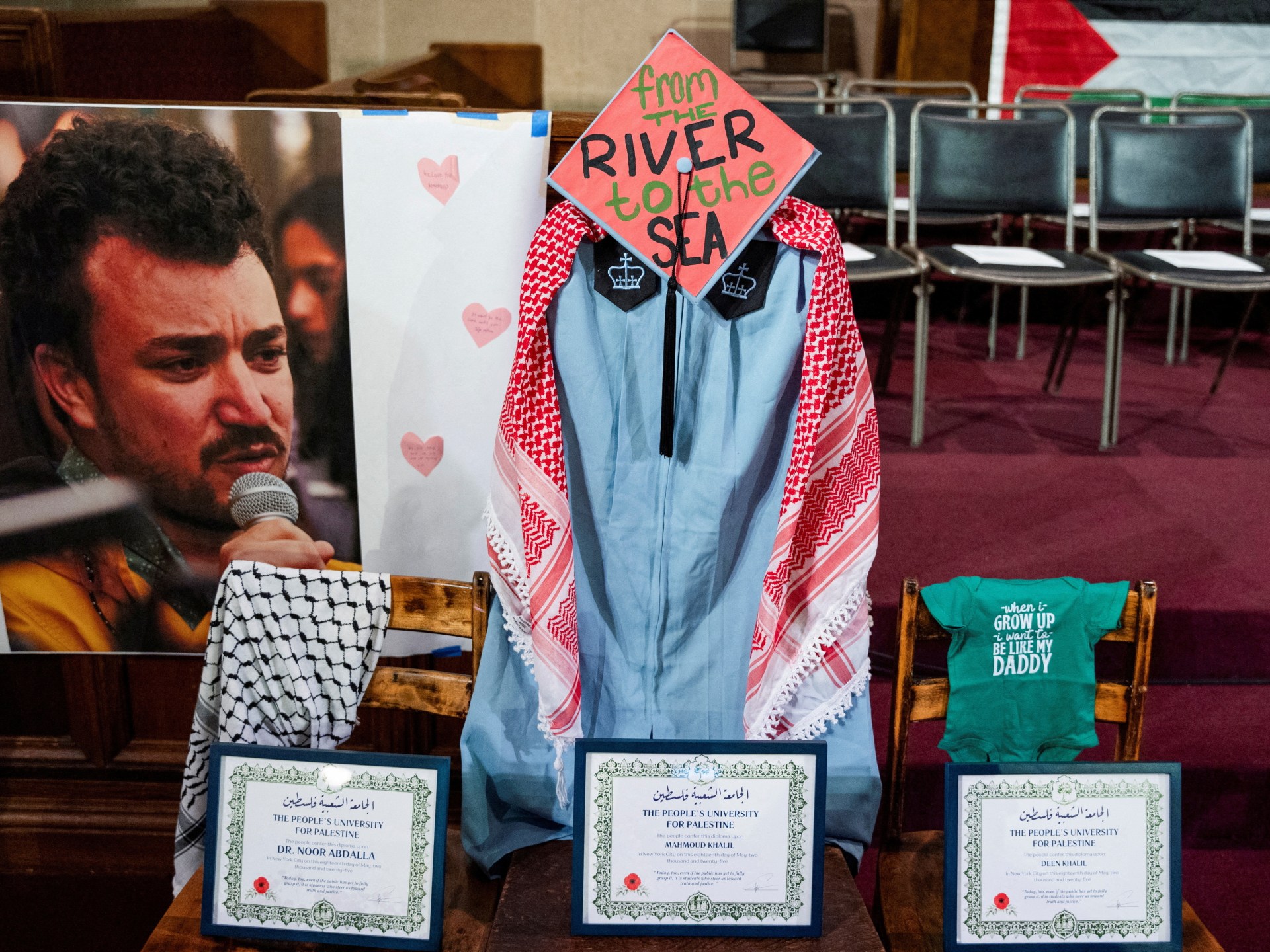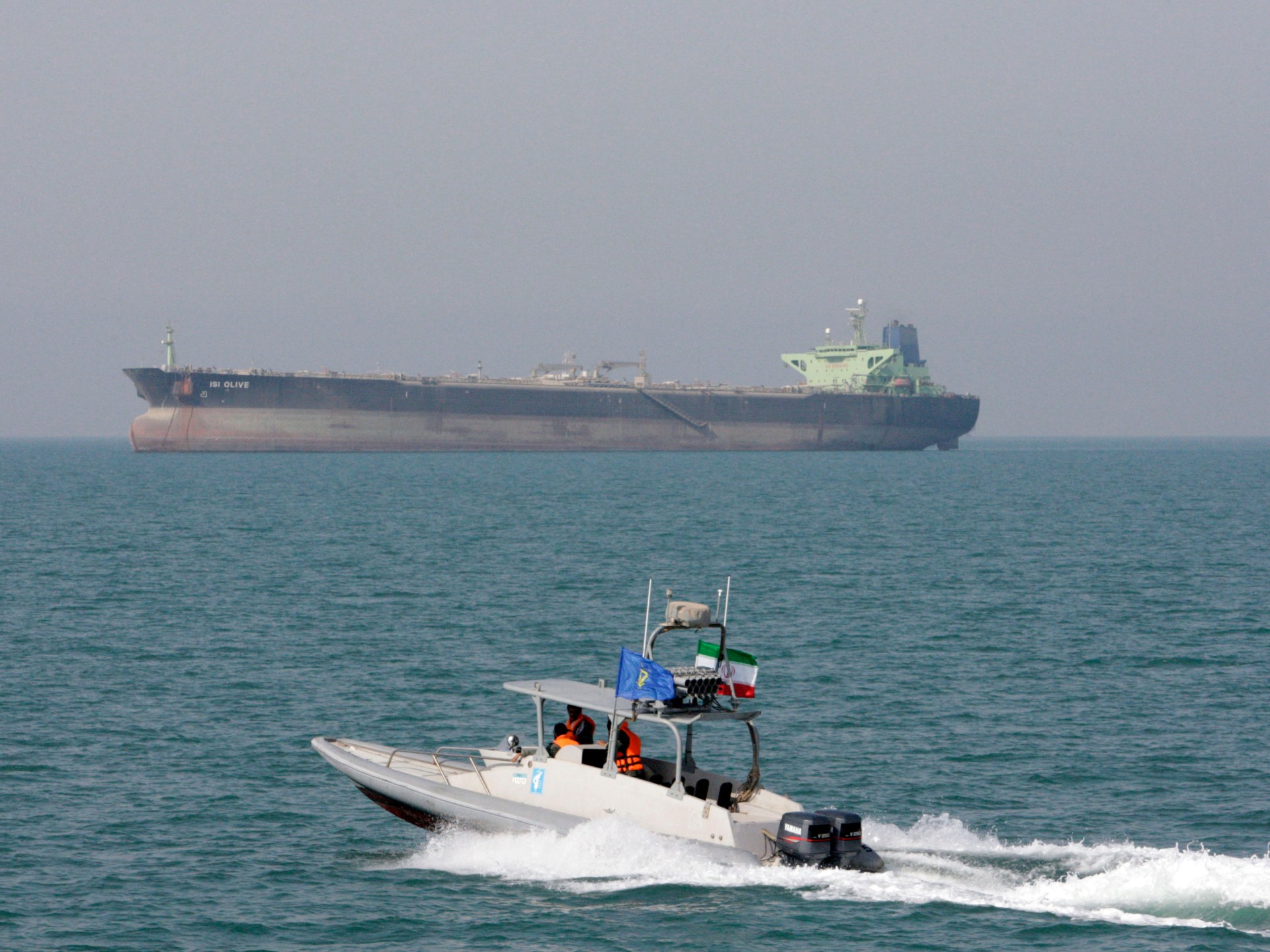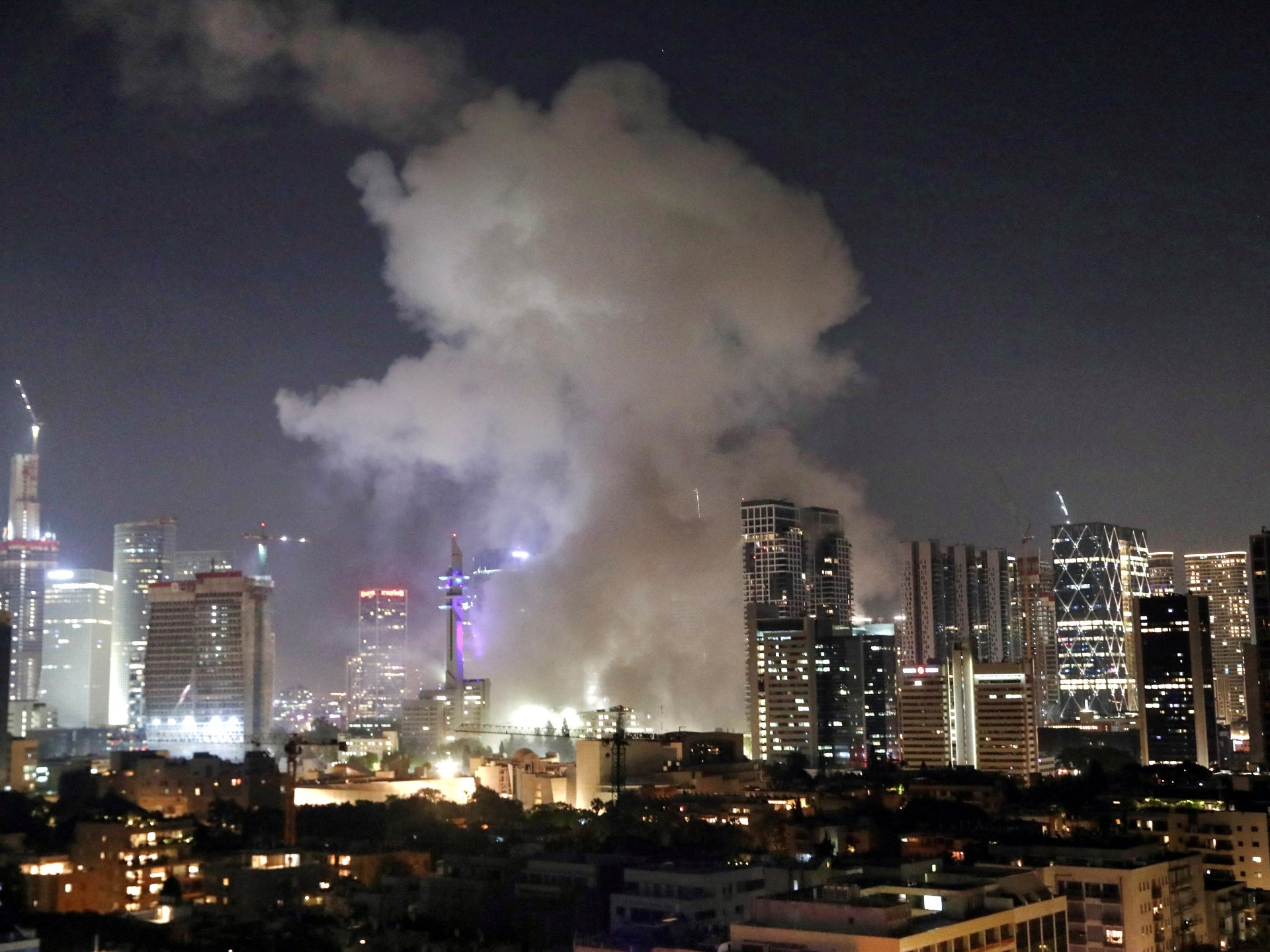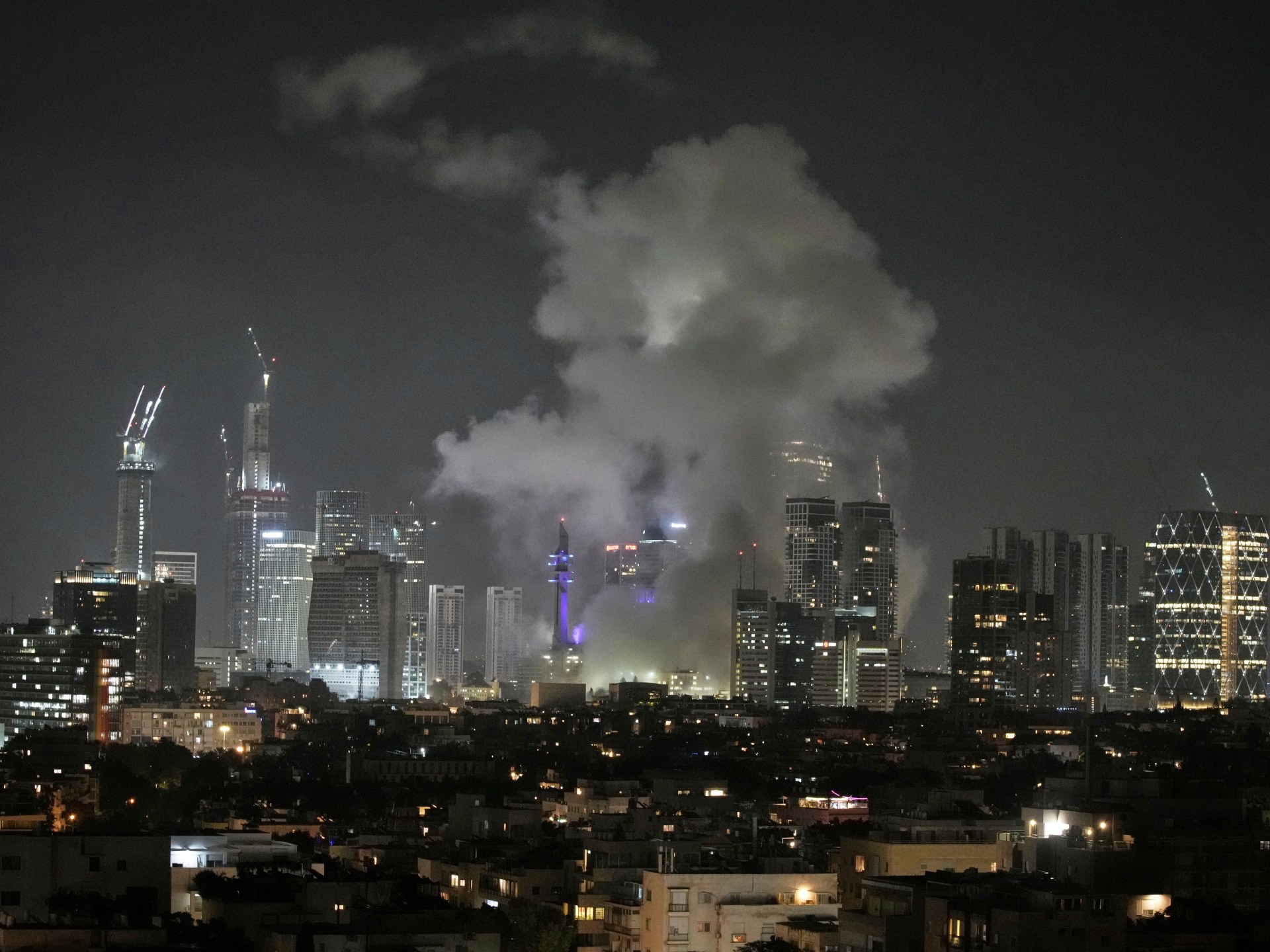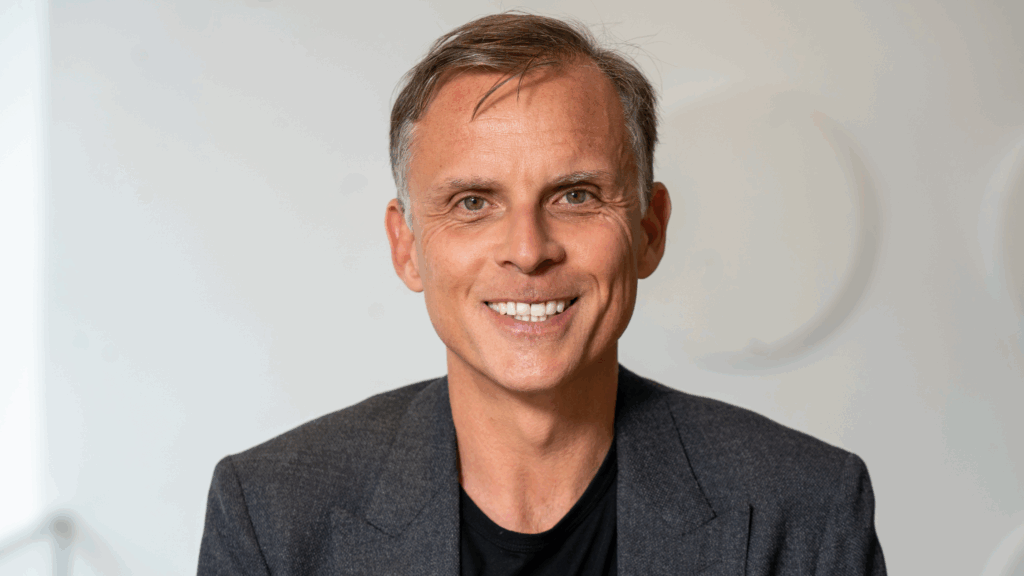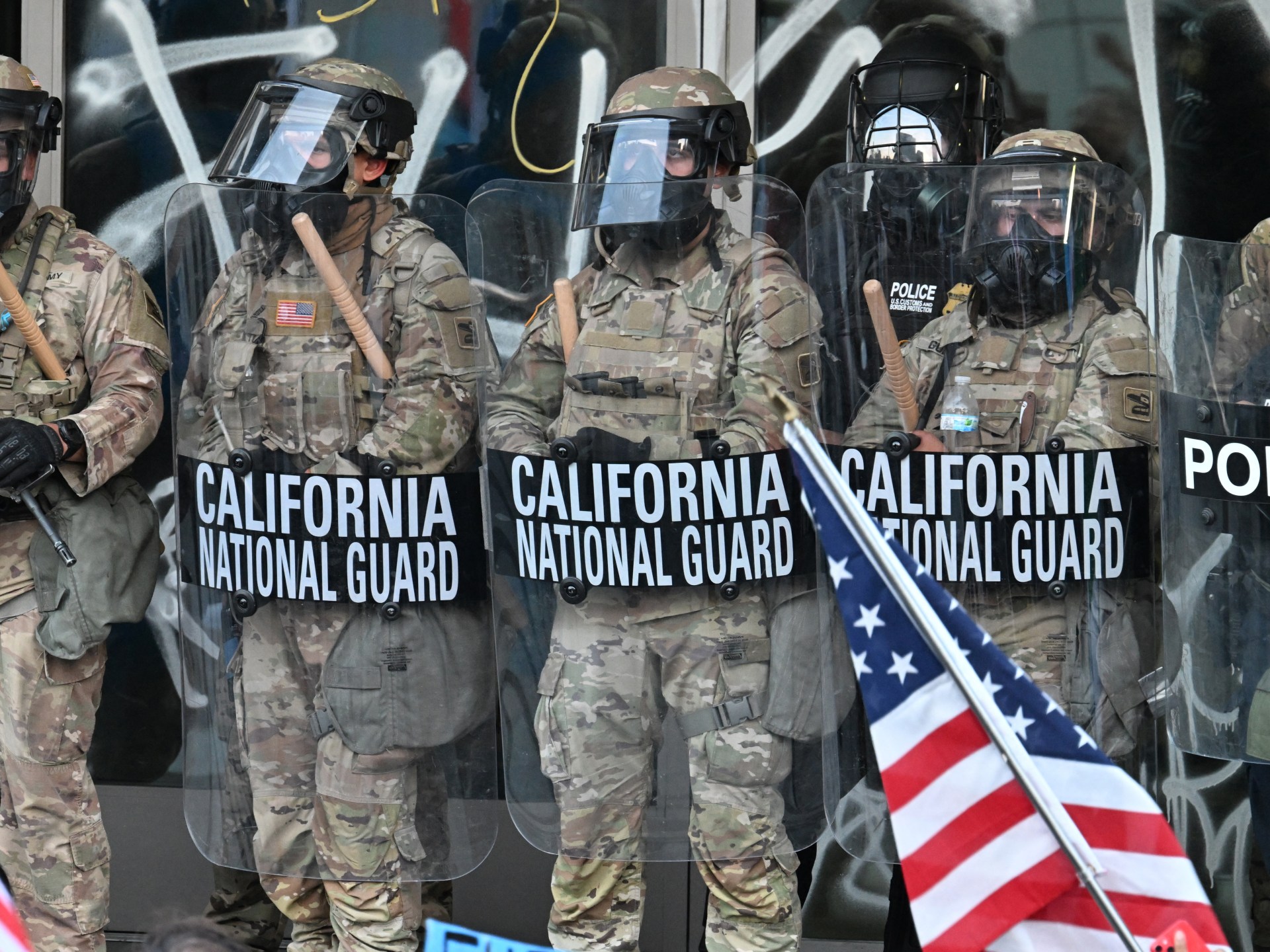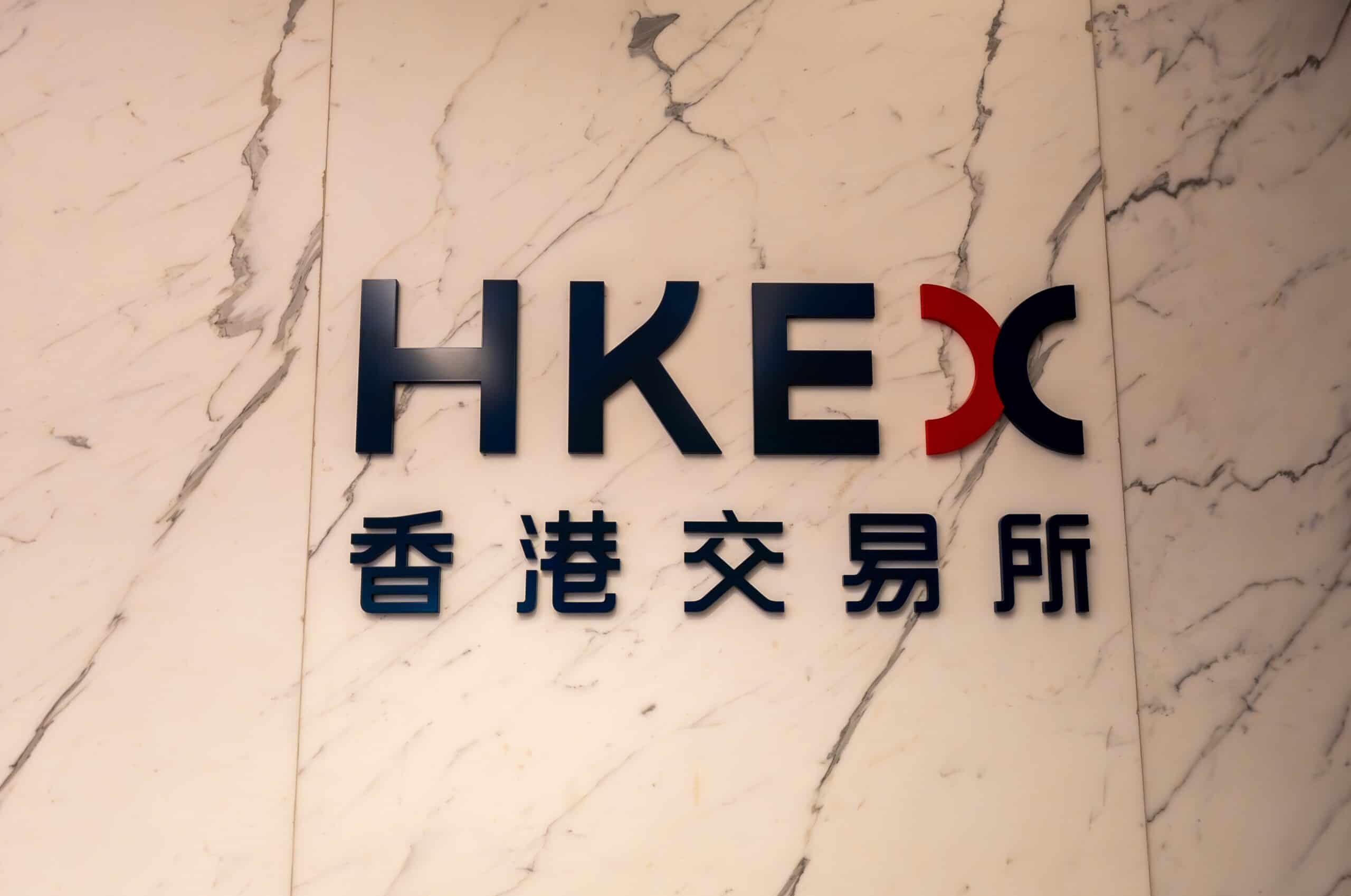Trump presides over Army parade: Celebration or ‘dictator behaviour’? | Donald Trump News
Washington, DC – It was the 250th birthday of the United States Army, and Trump’s 79th.
Tanks and other armoured military vehicles rumbled down the streets of Washington, DC, on Saturday, in what Trump had teased as an “unforgettable” event and critics had called a pricey tribute to the “egoist-in-chief”.
Speaking after the hour-long procession, which cut through a balmy evening dotted with raindrops, Trump framed the spectacle as a long time coming.
“Every other country celebrates their victories. It’s about time America did, too,” he told the crowd, which sprawled sparsely across the National Mall.
“That’s what we’re doing tonight,” he said.
Vice President JD Vance, who introduced the president at the end of the parade, was the only official to acknowledge the dual birthdays.
“June 14th is, of course, the birthday of the army. It is, of course, the birthday of the president of the United States,” he said. “Happy birthday, Mr President.”
For critics, the overlapping dates sent a disconcerting message.
Away from the celebrations, among about 100 protesters at Logan Circle in Washington, DC, Terry Mahoney, a 55-year-old Marine veteran, described the parade as “dictator behaviour”.
“If you take everything else he’s done, stomping on the US Constitution, this parade may just be window dressing,” he told Al Jazeera.
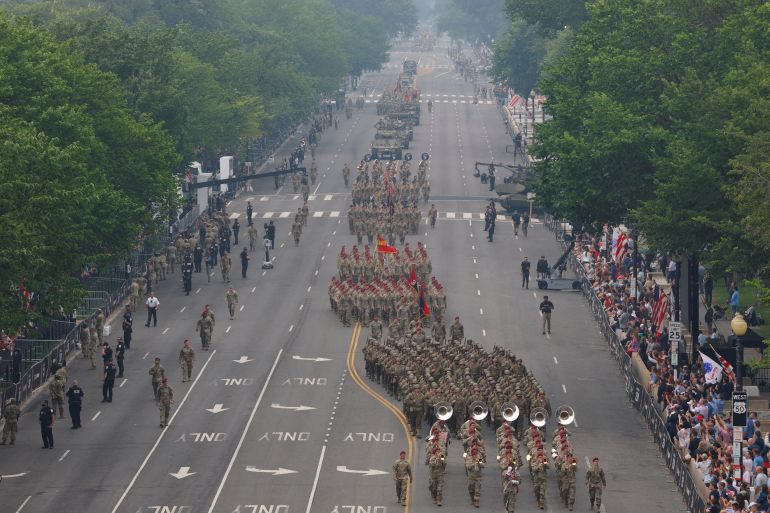
“But it’s the worst kind of window dressing,” said Mahoney, who was among the tens of thousands of protests who took to the streets nationally to oppose Trump’s leadership on Saturday. “So I wanted to make sure that my voice was represented today.”
But blocks away, near the entrance to the heavily fortified parade route, Taras Voronyy, who travelled from South Carolina, was less concerned about the blurred lines of the parade than the soldiers it was honouring.
“It’s a chance to celebrate the military, and also, Trump will be here,” he told Al Jazeera.
“I was actually a little confused if it was supposed to be for the Army’s 250th anniversary or for Trump’s birthday,” he said. “So I guess it’s a twofer.”
A birthday celebration
Trump had sought a massive military parade ever since attending a Bastille Day celebration in Paris in 2017, but faced pushback from defence officials during his first term.
This time around, he sent 28 Abrams tanks, a horde of armoured vehicles, cavalry, military planes and helicopters, both modern and antique, to the US capital, in a show of military hardware without comparison since 1991, when the US marked the end of the Gulf War.
Spectators gathered along Constitution Avenue – a thoroughfare that connects the White House to the US Capitol – for a pageant that stretched from the Army’s 1775 birth, through World War II, the Vietnam War, and the so-called “war on terror”.
Trump’s arrival prompted cheers, and a handful of jeers, from the crowd, which was dotted with red Make America Great Again (MAGA) hats. Attendance appeared to be less than the military’s prediction of about 200,000 people.
For Freddie Delacruz, a 63-year-old US Army veteran who travelled from North Carolina for the parade, Trump’s birthday and the Army celebration were distinct phenomena.
“It’s a coincidence,” he said. “I got married on June 6, which is the anniversary of D-day [the landing of allied forces on the beaches of Normandy, France].”
“So these things happen,” he said. “But we’re here to support the army. I spent 32 years in the army – I want to see the tanks, the planes, the helicopters flying around.”
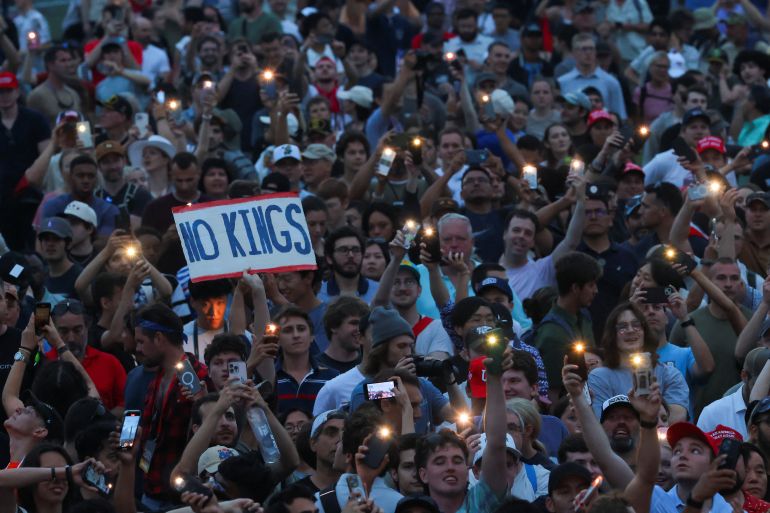
Delacruz also did not see much significance in Trump’s deployment earlier this week of the US National Guard to California to respond to protests against Immigration and Customs Enforcement (ICE) raids in Los Angeles and other cities.
Local officials and rights advocates have said the deployment, which was soon followed by Trump sending Marines to protect federal property and personnel, represented a major escalation and overreach of presidential power.
A judge on Thursday sided with a lawsuit filed by California Governor Gavin Newsom, ruling that Trump’s deployment without the governor’s approval was unlawful. However, an appeals court paused the ruling just hours later, allowing the deployment to temporarily continue.
Delacruz acknowledged that Trump has “got a lot of power… I mean, he’s got the Department of Defense, he’s got the Department of Department of State and now, all the Cabinet members are supporting him 100 percent”.
“But he’s still just the president, and he can’t control Congress,” he added. “This is what the people voted for.”
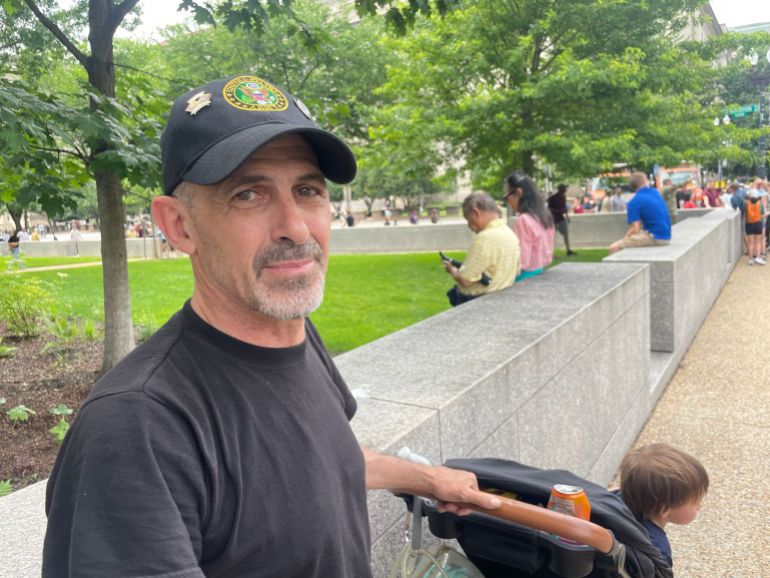
Aaron M, a 57-year-old Army veteran from Miami, Florida, also said he did not see an issue with how Trump has used federal forces in local law enforcement.
Trump’s decision was the first time since 1965 that a president had activated the National Guard without a governor’s consent. Both Trump and Defense Secretary Pete Hegseth have indicated that the approach could be replicated across the country.
In recent days, Trump has also floated invoking the Insurrection Act of 1807, which would allow US troops to take part in domestic law enforcement, in what critics call a step towards martial law, but has not yet done so.
“If governors can’t get their states under control, then Trump should send [the National Guard] in,” said Aaron, who declined to give his last name.
“Look, I was born in Nicaragua. I came here when I was 12,” Aaron added.
“I know what a dictator is. This is not a dictator,” he said, motioning to the grandstand from where Trump watched the parade.
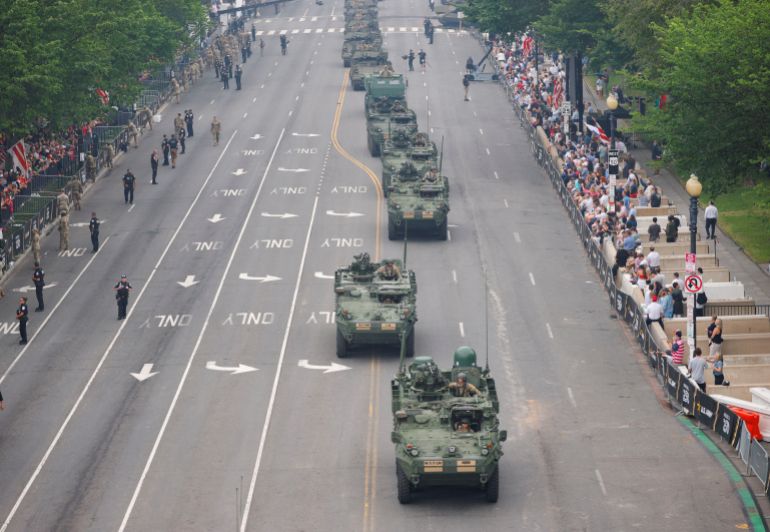
‘Protesting is patriotic’
For Anahi Rivas-Rodriguez, a 24-year-old from McAllen, Texas, the military pageantry underscored a more troubling turn, which she said included Trump’s hardline immigration policies melding with the country’s military might.
“I have a lot of people in my life who are scared. We do not belong in a fear in America,” said Rivas-Rodriguez, who joined a group of protesters marching in front of the White House.
“I do not stand by an America that tears families apart and targets people because they look brown and they look Mexican,” she said, her eyes welling up, “because they look like me”.
Trump earlier this week described the protesters as “people who hate the country”, adding that those who came out on Saturday would be “met with very big force”.
Rivas-Rodriguez bristled.
“Protesting is patriotic, and I am here for my country because I care about America,” she said. “Maybe I’m a little intimidated [by Trump], but I am not scared because I am still here.”
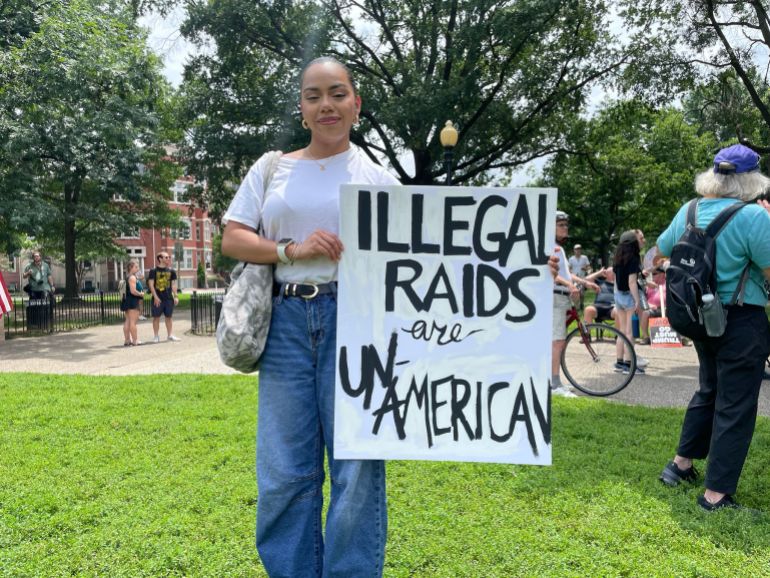
About 60 arrests were made in a protest at the US Capitol late on Friday, but no major incidents were reported in the US capital on Saturday, with many groups choosing to hold protests elsewhere.
The organisers of the national “No Kings” protests held no official event in DC, despite hosting demonstrations in about 2,000 cities across the country.
In a statement, the group said they did so to avoid “allowing this birthday parade to be the center of gravity”.
Still, Roland Roebuck, a 77-year-old Vietnam War veteran from Puerto Rico, said he wanted to attend the parade in protest to send a message.
“Trump has been allergic to military service and deeply disrespectful of the military,” he said, pointing to Trump’s medical exemption from serving in Vietnam due to “bone spurs”, in what critics have said amounted to draft dodging.
Roebuck said the parade – with a price tag of between $25m and $45m – rings tone deaf at a time when Trump has been rolling back federal services, including those that affect veterans.
He also accused Trump of “erasing” the contributions of Black soldiers like himself through his administration’s anti-Diversity, Equity, and Inclusion (DEI) campaign at the Pentagon.
“Many of the people that are here are very confused with respect to what this parade represents,” Roebuck said.
“This represents a farce.”
